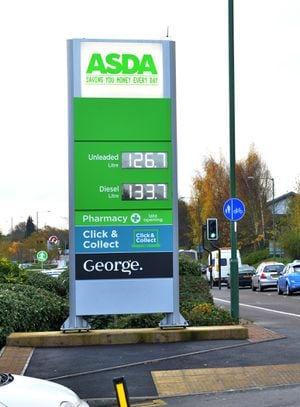Huge rise in people dining and dashing without paying
More than 1,500 dine-and-dashers ran off without paying in West Mercia last year.

Industry representatives say leaving without paying for services including meals, petrol, or taxi journeys is akin to "stealing someone's wages", and could leave innocent people unable to provide for their families.
Home Office figures reveal West Mercia Police recorded 1,655 making off without payment offences in the 12 months to September 2018.
This was an increase of 45 per cent compared to the same period in 2014-15.
Despite the rise, the number of offenders being charged has fallen.
In 2014-15, the police brought charges 40 times, or in four per cent of cases.
But by 2017-18, this had fallen to one per cent, with charges brought just 24 times.
Making off without payment is when a person dishonestly leaves despite knowing that payment is due on the spot.
Offences have risen by 48 per cent across England and Wales in the last three years, while the proportion of offenders being charged has fallen from just under five per cent to less than two per cent.
Federation of Small Businesses chairman Mike Cherry said the rise was being exacerbated by police cuts.
He said: “This can’t be allowed to continue – lots of businesses have very tight margins and it’s time to stop tolerating opportunistic thieves taking food off the family table.
“If the police are not able to meet the needs of businesses across the country, then the government should step in and give the authorities the funding they need to tackle this problem."
The British Oil Security Syndicate, which helps recover debts for petrol stations, estimates that drive-offs at garage forecourts cost retailers around £20 million a year.

Some police forces claim such incidents are a civil rather than criminal matter and refuse to investigate, it added.
Executive director Kevin Eastwood said: “What we would stress with the police is that we don’t want to waste their time and we don’t want them to be debt collectors.
“But we do want to work with them to drive down forecourt crime and stop criminals who are active in our communities."
Wayne Casey, from the National Taxi Association, said there is an "obvious difference" in the way some police forces approach fare dodgers.
He said: "The police are being stretched to the bone so it’s annoying for taxi drivers but you can understand it.
"Drivers do tend to take it personally though, because you’ve essentially just given up your time to take somebody home for free."
The vast majority of cases in West Mercia – 73 per cent – were closed without a suspect being identified.
A Home Office spokesman said: "These offences place a significant burden on businesses, both in terms of financial loss and staff resources.
“We expect the police to take all reported crimes seriously and it is the responsibility of chief constables and Police and Crime Commissioners to make sure criminal cases are investigated properly."

He added that police forces had been given their largest funding increase since 2010.
Policing Lead for Shropshire and Telford & Wrekin, Chief Superintendent Kevin Purcell, said the force's focus is on preventing that type of crime.
He said: “We really do understand the impact someone making off without paying for goods or services has on smaller businesses, which is why prevention is crucial.
“I’m sure our local communities would agree protecting those who are most at risk of harm has to be our priority and we know, in particular at fuel stations, there are often links between those making off without payment and serious and organised crime with some of those involved victims of criminal exploitation.
“Over the past few months We Don’t Buy Crime has worked closely with various businesses, including fuel stations, food venues and coffee shops, to not just help prevent the number of people making off without payment but also train staff to spot the signs someone may be at risk, or already a victim, of criminal exploitation.
“This work will continue, the more we can do to empower staff working at these venues to spot the signs and give them confidence to report these concerns, the more we can all do, working together, to make our communities even safer and protect those who are most vulnerable.”
We Don’t Buy Crime is West Mercia Police’s response to tackling acquisitive crime, which includes crimes such as theft, and the associated harm.





